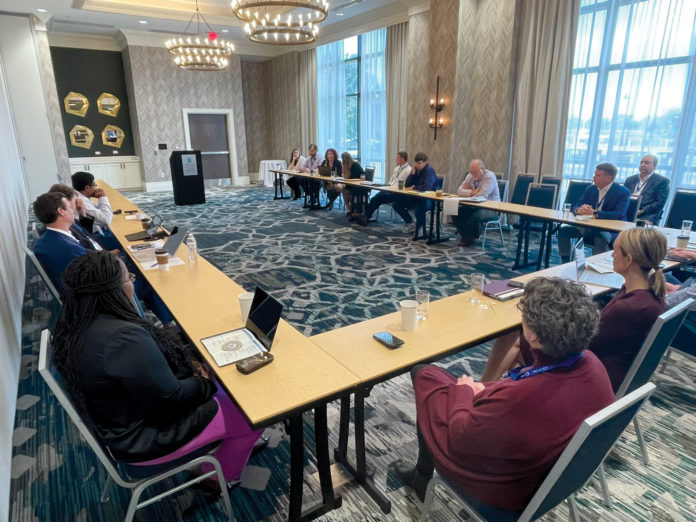Annual conference yields new ideas, key conversations.
League staff members from across the Southeast recently got together in Wilmington for the annual Southern Municipal Conference, an event like many others that in 2020 was forced to the sidelines by the COVID-19 pandemic. With staffs from North Carolina and Kentucky coordinating as hosts, representatives from those two states and Alabama, Arkansas, Louisiana, Florida, Virginia, South Carolina, Mississippi, and West Virginia attended the conference held October 20–22. The event allows municipal league executive directors, governmental affairs, and information technology staff to compare notes and learn from peers about looming issues in statehouses across the South, as well as those affecting municipal league operations.
On the policy front, a heavy dose of discussions surrounding American Rescue Plan funding came as no surprise. Just as in North Carolina, many municipal leagues are working with partners to hold meetings and webinars to try to help member cities and towns navigate the funding and its requirements. While much of the talk focused on the potential benefits of spending ARPA funding on infrastructure, representatives of the Alabama League of Municipalities also noted how they are encouraging members to utilize revenue-loss provisions where possible to minimize potential auditing problems.
Two other hot-button topics were the passage of medical marijuana laws and policing reforms.
Roughly half of Southeastern states have now passed medical marijuana laws, with Alabama passing legislation this year and Virginia further liberalizing its 2017 law. In North Carolina, legislation was filed this year and appeared to have more support and backing of influential legislators than in the past.
In Virginia, municipal league lobbyists pointed out that its laws created an opt-out for municipalities when it comes to whether places of distribution are permitted, rather than an opt-in, to try to avoid controversial votes or referendums. Distribution of taxes associated with the sales is a key issue in all of these state laws.
Just as in North Carolina, all states saw extensive debates regarding police reform measures this year, with much of the focus on training standards and mental health counseling for officers.
In addition to actual policy, ideas were shared regarding how to effectively connect locally-elected officials with state legislators and members of Congress, as well as how to engage citizens on the importance of local decision-making.
A session organized by NCLM Director of Information Technology Sunil Rajan examined the growing threats posed by computer hacking and its potential to cripple local government operations. Johnny Griffin, director of the Wilmington Regional Film Commission, also spoke to attendees to verse them on the history and current status of the Wilmington film industry, including recounting how it largely began with the siting of the area for the 1984 film “Firestarter.”















